
Copernical Team
Spacesuit design: João Montenegro
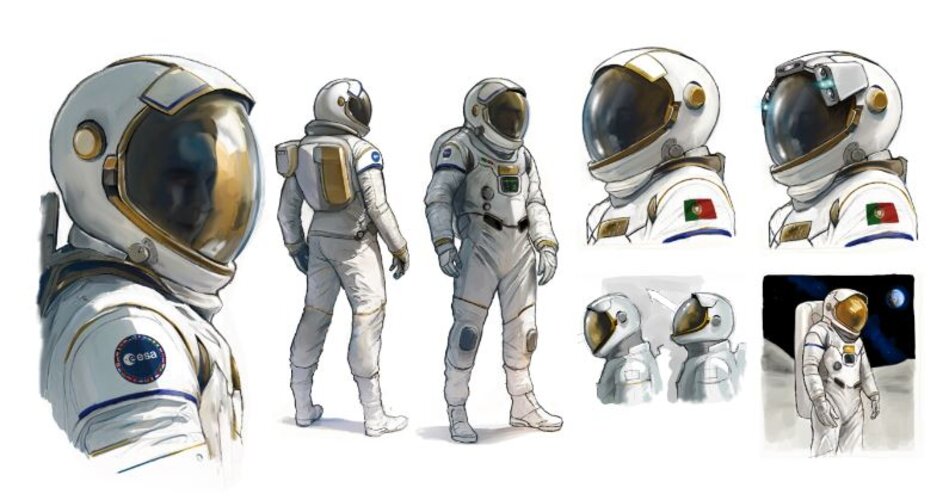 Image:
Spacesuit design: João Montenegro
Image:
Spacesuit design: João Montenegro Fixes needed before first Vulcan Centaur launch
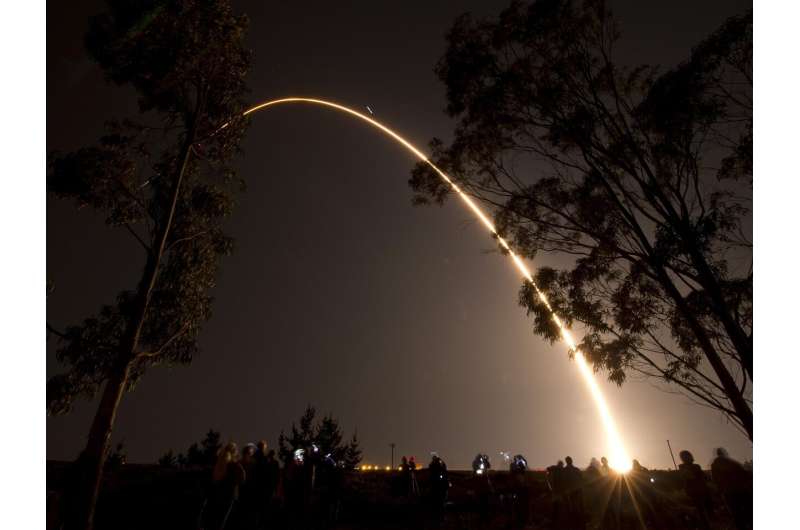
There's still work to be done, but United Launch Alliance has announced a path forward to finally get its new Vulcan Centaur rocket to its first launch.
The company sent an update Saturday announcing it had figured out what went wrong, and what needs fixing at its Alabama test facility that resulted in a fireball that damaged a test article of the Centaur V upper stage this spring.
"Centaur's thin-walled pressure stabilized tanks require minor reinforcement at the top of the forward dome prior to flight," the company stated in a press release.
That means the Centaur currently mated to the Vulcan first stage at Cape Canaveral Space Force Station that is tapped to fly on that rocket's first mission has to head back to Alabama to get that reinforcement.
The first and second stages recently completed a Flight Readiness Firing test at Canaveral's Space Launch Complex 41, and ULA said results of that hot fire hit all of the test objectives.
But now teams will de-stack the combined rocket and send Centaur V to ULA's Decatur, Alabama facility for the fix while the first-stage booster will be stored at ULA's Horizontal Integration Facility at Canaveral waiting for its return.
Germany is building a tiny rover that will roam the surface of Phobos
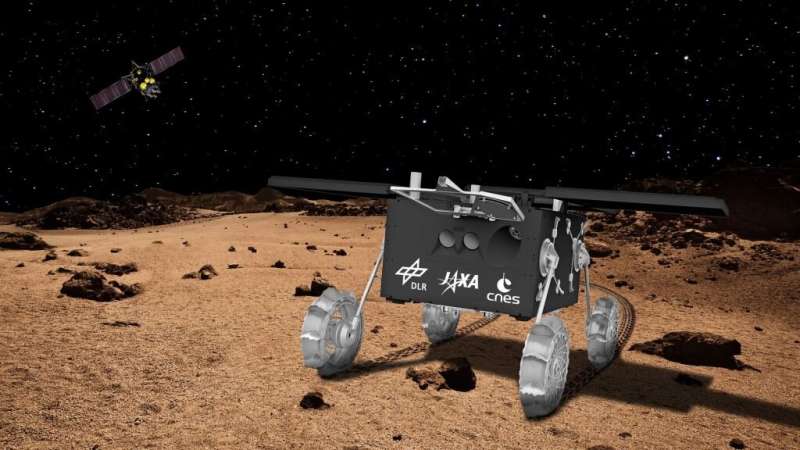
At this very moment, eleven robotic missions are operating in orbit or on the surface of Mars, more than at any point during the past 60 years. These include the many orbiters surveying the red planet from orbit, the handful of landers and rovers, and one helicopter (Ingenuity) studying the surface.
In the coming years, many more are expected, reflecting the growing number of nations participating in the exploration process. Once there, they will join in the ongoing search for clues about the planet's formation, evolution, and possible evidence that life once existed there.
However, there's also the mystery concerning the origin of Phobos and Deimos, Mars' two satellites. While scientists have long suspected that these two moons began as asteroids kicked from the Main Belt that were captured by Mars' gravity, there is no scientific consensus on this point.
NASA's Roman and ESA's Euclid will team up to investigate dark energy
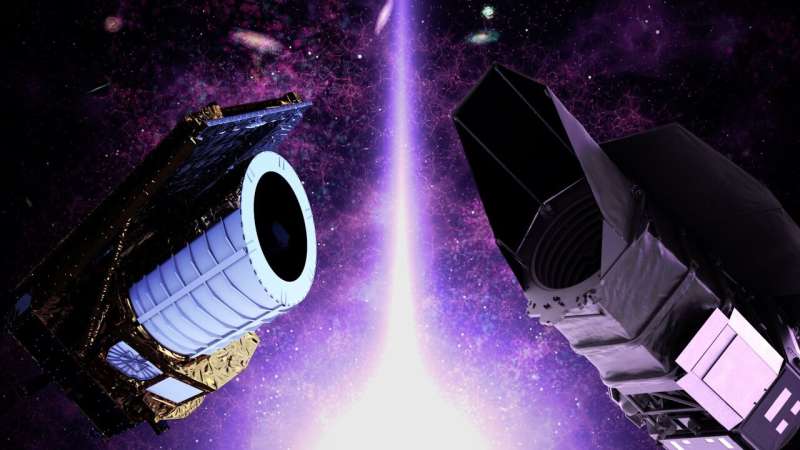
A new space telescope named Euclid, an ESA (European Space Agency) mission with important contributions from NASA, is set to launch in July to explore why the universe's expansion is speeding up. Scientists call the unknown cause of this cosmic acceleration "dark energy." By May 2027, NASA's Nancy Grace Roman Space Telescope will join Euclid to explore this puzzle in ways that have never been possible before.
"Twenty-five years after its discovery, the universe's accelerated expansion remains one of the most pressing mysteries in astrophysics," said Jason Rhodes, a senior research scientist at NASA's Jet Propulsion Laboratory in Southern California. Rhodes is a deputy project scientist for Roman and the U.S. science lead for Euclid. "With these upcoming telescopes, we will measure dark energy in different ways and with far more precision than previously achievable, opening up a new era of exploration into this mystery.
Spain delays rocket launch until Sept over wildfire risk
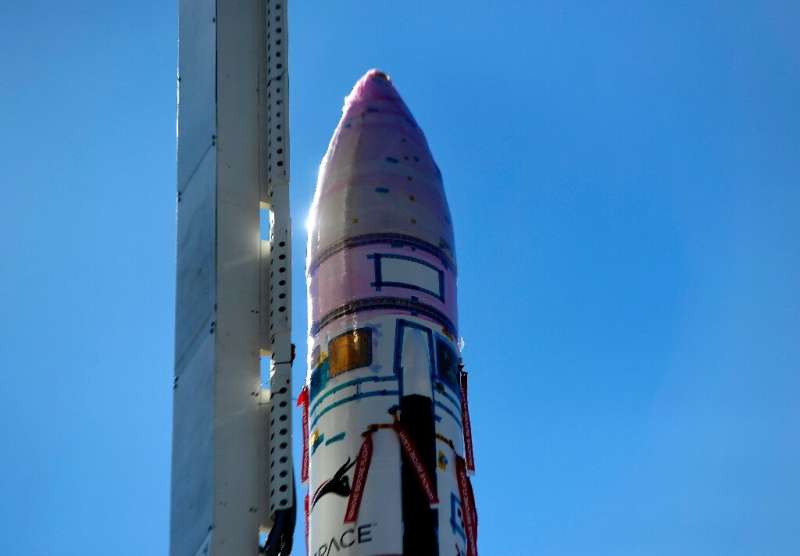
The maiden flight of Spain's Miura 1 rocket, twice suspended in recent weeks, has now been delayed until September over fears its launch could start a wildfire, its developer said Tuesday.
Built by private Spanish startup PLD Space, the rocket had initially been scheduled for take-off from El Arenosillo, a coastal military base in the southwestern province of Huelva, on May 31, but was called off due to high winds.
It was then aborted for a second time on June 17 due to a last-minute technical problem.
After talks with the National Institute for Aerospace Technology (INTA), "PLD Space.
Spacesuit design: Oussama Guarraz
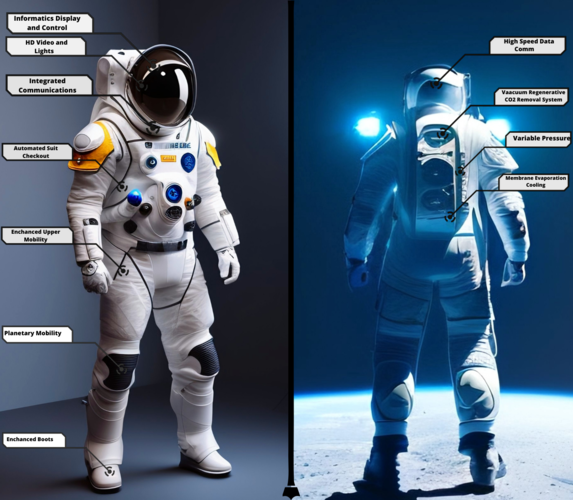 Image:
Spacesuit design: Oussama Guarraz
Image:
Spacesuit design: Oussama Guarraz Paris Air Show 2023: a memorable edition that brought the future of space to Europe
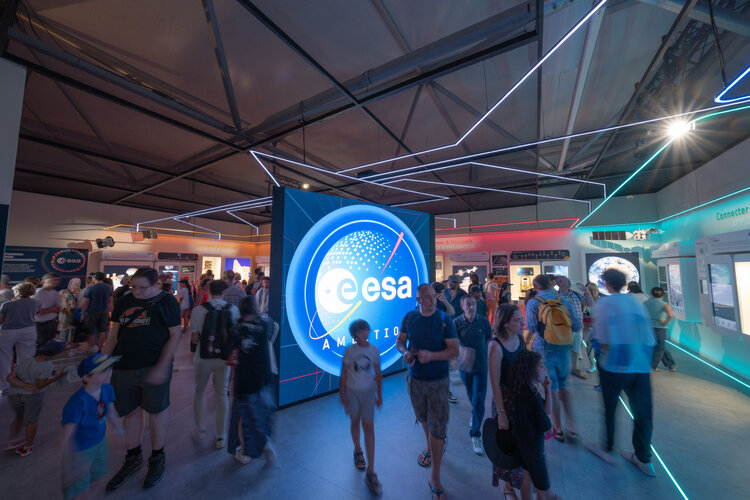
The 54th edition of the Paris Air Show, held from 19 to 25 June, just came to an end. The week-long show, one of the oldest and largest aerospace events in the world, welcomed institutional and trade visitors on the first four days, while on the last three days it opened its doors to space and aviation enthusiasts, students and children with their families. With more than 20 000 people visiting the ESA/CNES pavilion in the last three public days, the Paris Air Show 2023 showcased the successes and ambitions of the European Space Agency
Euclid ready for Falcon 9
 Image:
Image:
After being secured to the SpaceX Falcon 9 adaptor, on Friday 23 June, Euclid was mounted on top of the Payload Attach Fitting (PAF). Before launch, Euclid on the PAF will be encapsulated in the Falcon 9 rocket. ESA’s new cosmological mission Euclid is getting ready for lift-off with a target launch date of 1 July 2023 from Cape Canaveral in Florida (USA).
ESA's Euclid mission is designed to explore the dark Universe and uncover the great cosmic mystery of dark matter and dark energy. The space telescope will create the largest, most accurate 3D map of the Universe
Compact electric thruster cleared for space firing
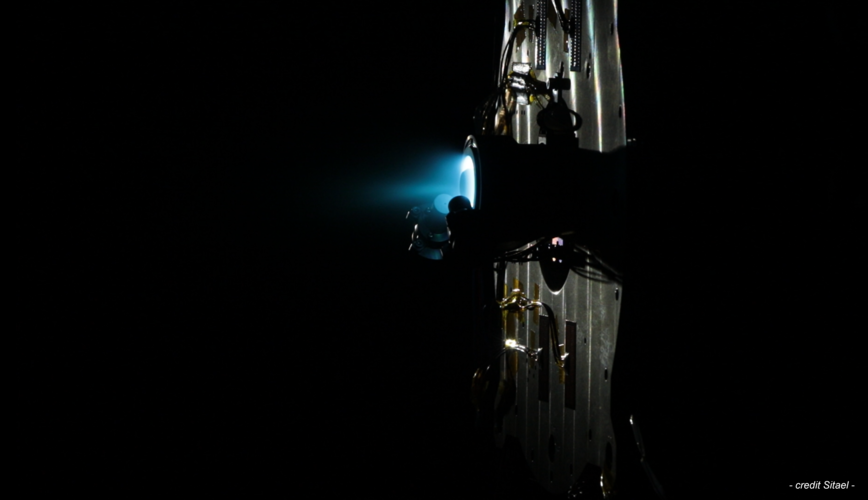
An innovative compact electric propulsion system has recently completed its extended qualification firing test campaign in space-representative vacuum and temperature conditions, leaving it ready to be deployed aboard the ESA-supported µHETSat technology demonstration microsatellite mission, slated for launch by the end of this year.
Researchers develop a new source of quantum light
 Using novel materials that have been widely studied as potential new solar photovoltaics, researchers at MIT have shown that nanoparticles of these materials can emit a stream of single, identical photons.
While the work is currently a fundamental discovery of these materials' capabilities, it might ultimately pave the way to new optically based quantum computers, as well as possible quant
Using novel materials that have been widely studied as potential new solar photovoltaics, researchers at MIT have shown that nanoparticles of these materials can emit a stream of single, identical photons.
While the work is currently a fundamental discovery of these materials' capabilities, it might ultimately pave the way to new optically based quantum computers, as well as possible quant 